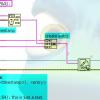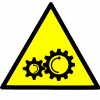Potential memory corruption when (de-)serializing Sets in LabVIEW 2019 SP1 f3 (32-bit)
-
Similar Content
-
- 4 replies
- 1,865 views
-
- 1 reply
- 2,341 views
-
- 11 replies
- 11,908 views
-
Troubleshooting Crashes and Hangs VI! Any feedback is appreciated
- crash
- troubleshooting
- (and 1 more)
- 9 replies
- 4,164 views
-
- 3 replies
- 5,402 views
-




Recommended Posts
Join the conversation
You can post now and register later. If you have an account, sign in now to post with your account.